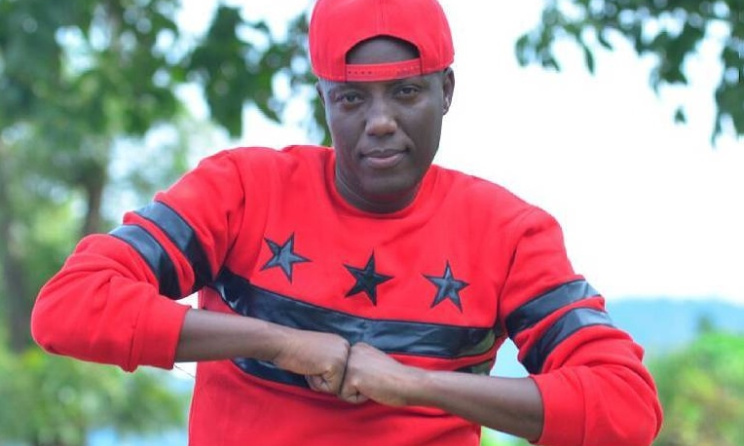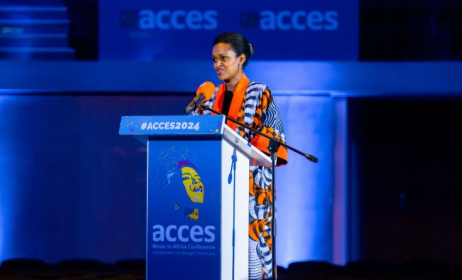Rwanda: musicians want new music tariffs implemented
Prominent Rwandan musicians have urged the public to respect the new music tariffs which were recently introduced by the government.
 Last month, Eric Senderi accused the Rwandan Development Board of copyright infringement. Photo: EAchamps Rwanda
Last month, Eric Senderi accused the Rwandan Development Board of copyright infringement. Photo: EAchamps Rwanda
The musicians, including Eric Senderi (Senderi International Hit), Dieudonne Munyanshoza, Jean de Dieu Tuyisenge and Sgt Major Robert Kabera, decided to go public with their tariffs as a warning to individuals who play their music without consent or due compensation.
The move comes just weeks after a new law on Intellectual Property (IP) was published in the official gazette No.39 of September 24, 2018, under article 262 of the Rwandan penal code, finally giving local artists hope of earning from their works.
Article 262 states that: “Any person, who fraudulently uses an author’s name or distinctive sign on a literary, artistic or scientific work, commits an offence. Upon conviction, he/she is liable to a fine of not less than seven million, but not more than ten million, Rwandan francs.”
According to the new amendment, local government institutions can either pay artists 50,000 FRw ($56) whenever they play their music at public events, or else opt for an annual fee of one million Rwandan francs ($1,127).
However, the private sector, provinces, the City of Kigali and non-profit organisations will now need to pay an artist 200,000 FRw ($225) to play their songs at a single event, or two million francs annually ($2,254).
Lastly, disc burners who sell these artists' songs will be charged 50 FRw ($0.5) per day, or 15,000 FRw ($148) per year.
The artists are optimistic that the tariffs will help reduce music piracy.
“It’s been twenty years of our music being exploited by other people for their own interest, not ours. But as artistes who have the same mission, we think this is time to stand up and fight for our benefit,” Kabera told The New Times.
Senderi told the same publication: “The tariffs are not aimed at disappointing people and our fans, but it is us saying that our rights and benefits from our intellectual property should be respected, because our lives depend on it.”
The musicians have asked fellow artists to be vigilant and to take the fight against music piracy seriously.
Tuyisenge said the new tariffs vary depending on who is playing the song, the type of function at which the song is played and the duration that the song is played.
“We wanted many artists to join us in this initiative but since there are so many who do not understand it yet, we decided to kick-start the process rather than sitting back, and watch as people make money from our compositions without paying us anything. We believe more artists will join us,” he said.
Rwandan musician Mani Martin told Music In Africa that the new bill will go a long way towards ensuring that creatives are well compensated.
"I think it is the right time for Rwandan artists to be rewarded for our work," he said. "I have heard stories of legendary artists whose music was played everywhere, but unfortunately they died poor. it is unfair that people don't recognise the effort and resources that artists put in place to ensure the public gets that good song or music video."
He added that: "I am so thankful to the government for putting this bill in place. I believe this tariffs will encourage everyone who has talent to come out and produce, as we feel like music is not something people consume for free."
This latest development comes after Senderi accused the Rwanda Development Board (RDB) of copyright infringement back in September.































Comments
Log in or register to post comments